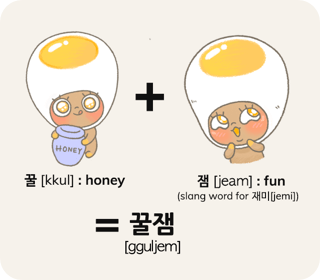In the Russian novel by Dostoevsky, the Karamazov Brothers the second son of Fedor is Ivan an atheist, the writer of the Peace Column of the Catholic Peace Weekly brings to the readers' attention the words this cold reasoning, proud individual, confides to his brother Alyosha.
"I want to live. I want to live even though it's against my logic. Even though I do not believe in the order of things— in the spring, the sticky leaves that sprout are precious, the blue sky is precious, and sometimes without any reason, people are seen by me as precious."
When we finish this pilgrimage on earth what will we consider the most valuable? It is hard to assert anything because life is the first experience for all of us. However, it seems that it is not riches, honor, and power that we struggle to achieve like swarms of insects flying towards the light on a summer night.
I have never seen anyone who was dying ever lament on not making more money or for not receiving sufficient honors. But rather missing the small moments of everyday life with the family, a pleasant trip, spending time with friends. Even Ivan, with his intellectual vanity, says that a person who can see the leaves and the sky and the preciousness of life doesn't want to die.
However, nowadays people are buried in work not able to see what is precious. It's not working to live, but living to work; one forgets what comes first. The meaning of life is nothing more than a hollow philosophy to people who spend their lives dying in the work. Labor is not a blessing but a curse. Such workaholics do not enjoy the freedom of a holiday. Freedom is just an uncomfortable waste.
Ivan's confession tells what is most valuable in life. Falling leaves, bright blue sky, and good people can not be measured numerically. These precious things are not included in GDP (Gross Domestic Product) and GNP (Gross National Product). Happiness in soaking a watermelon in the valley water, happiness to hear a child's chattering, the warm gaze of a loved one, and enjoyment of play are not captured with words.
The summer vacation season has begun. Life is difficult we hear often but at no time throughout human history do we have the abundance that we now experience. So we can take a break from work. We are invited to taste the simple pleasures of life that come to us daily without a price tag. Persons who discover these joys in life have no anxious worries that keep them from sleep or become frustrated in life.
How about asking 'Wisdom on how to count' (Psalm 90,12)."Teach us to count how few days we have and so gain wisdom of the heart." What will I miss on the day when the expiration date for my life approaches? With this wisdom, the happiness we taste during the holidays will be doubled.
"I want to live. I want to live even though it's against my logic. Even though I do not believe in the order of things— in the spring, the sticky leaves that sprout are precious, the blue sky is precious, and sometimes without any reason, people are seen by me as precious."
When we finish this pilgrimage on earth what will we consider the most valuable? It is hard to assert anything because life is the first experience for all of us. However, it seems that it is not riches, honor, and power that we struggle to achieve like swarms of insects flying towards the light on a summer night.
I have never seen anyone who was dying ever lament on not making more money or for not receiving sufficient honors. But rather missing the small moments of everyday life with the family, a pleasant trip, spending time with friends. Even Ivan, with his intellectual vanity, says that a person who can see the leaves and the sky and the preciousness of life doesn't want to die.
However, nowadays people are buried in work not able to see what is precious. It's not working to live, but living to work; one forgets what comes first. The meaning of life is nothing more than a hollow philosophy to people who spend their lives dying in the work. Labor is not a blessing but a curse. Such workaholics do not enjoy the freedom of a holiday. Freedom is just an uncomfortable waste.
Ivan's confession tells what is most valuable in life. Falling leaves, bright blue sky, and good people can not be measured numerically. These precious things are not included in GDP (Gross Domestic Product) and GNP (Gross National Product). Happiness in soaking a watermelon in the valley water, happiness to hear a child's chattering, the warm gaze of a loved one, and enjoyment of play are not captured with words.
The summer vacation season has begun. Life is difficult we hear often but at no time throughout human history do we have the abundance that we now experience. So we can take a break from work. We are invited to taste the simple pleasures of life that come to us daily without a price tag. Persons who discover these joys in life have no anxious worries that keep them from sleep or become frustrated in life.
How about asking 'Wisdom on how to count' (Psalm 90,12)."Teach us to count how few days we have and so gain wisdom of the heart." What will I miss on the day when the expiration date for my life approaches? With this wisdom, the happiness we taste during the holidays will be doubled.




